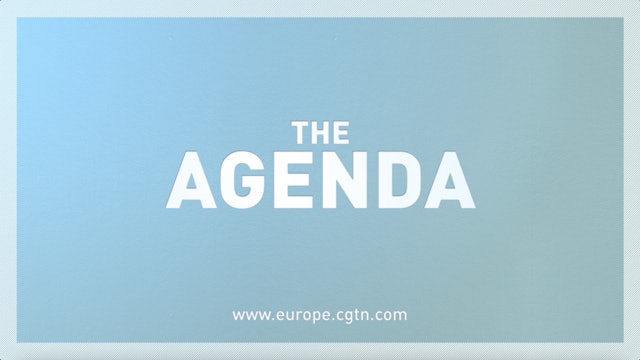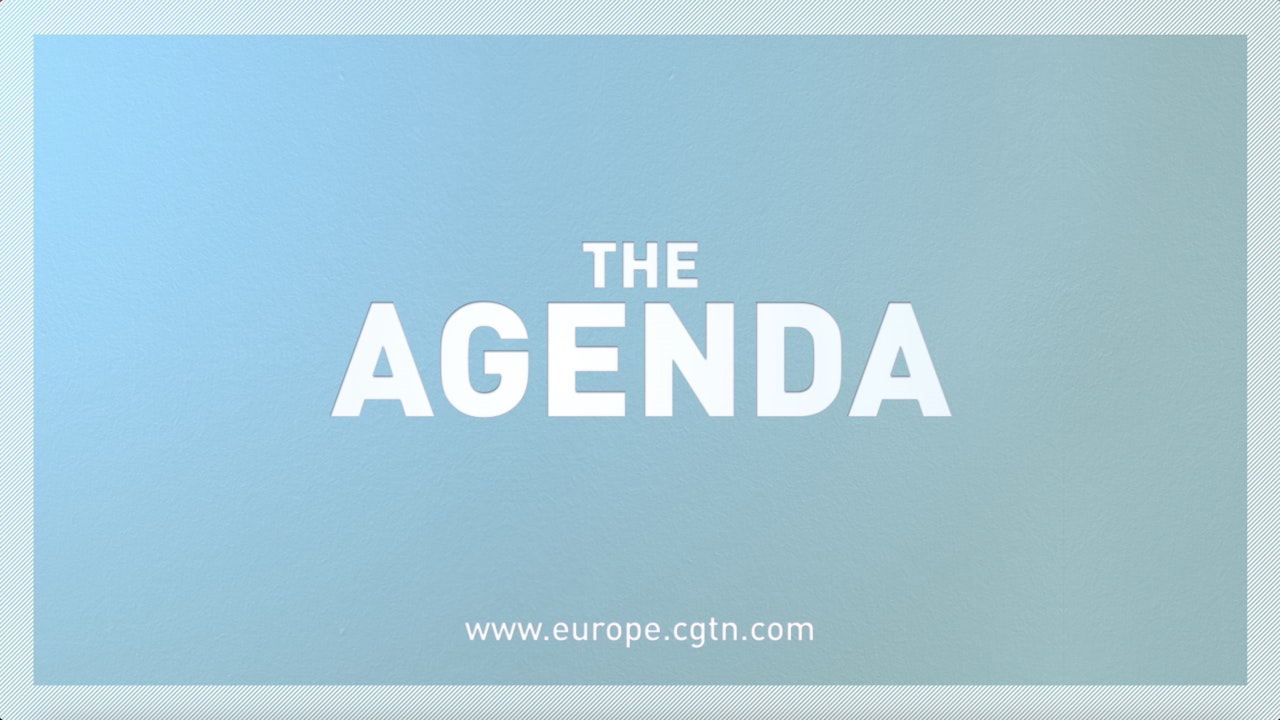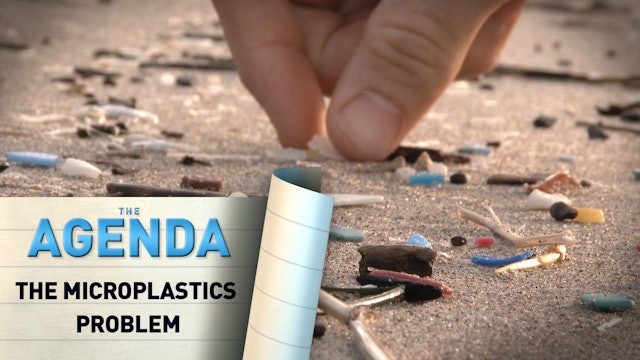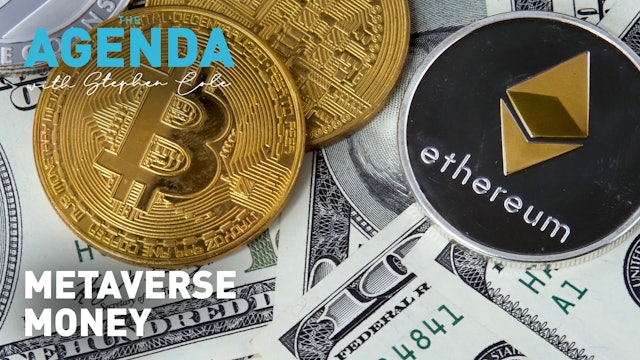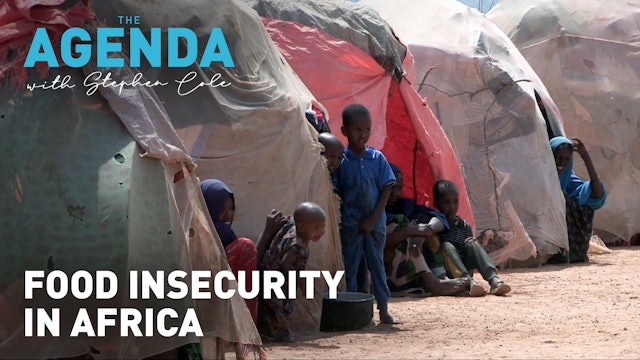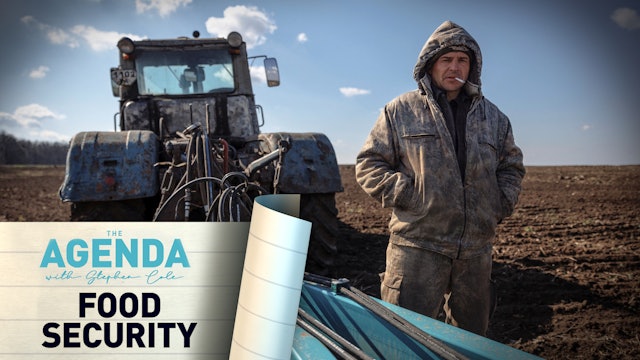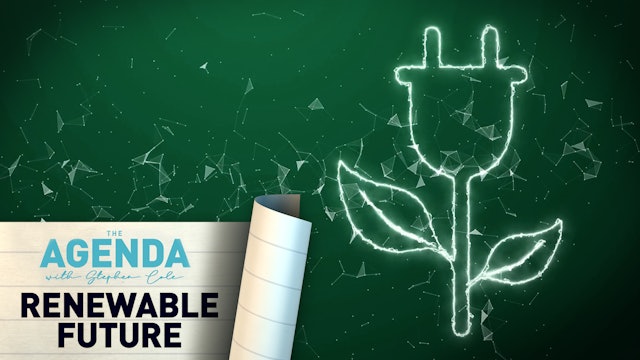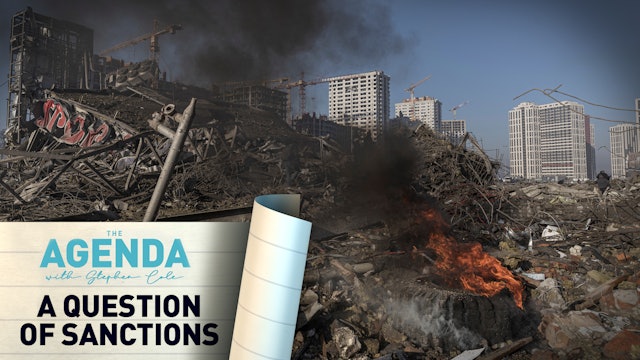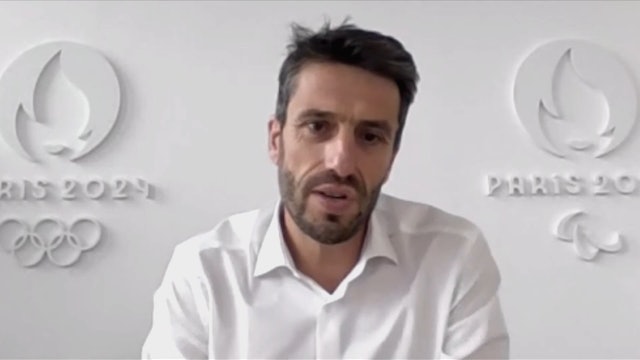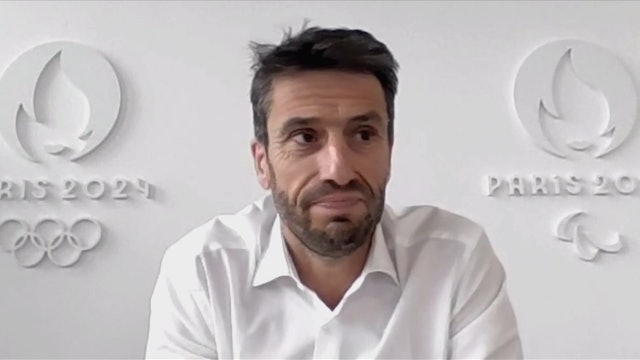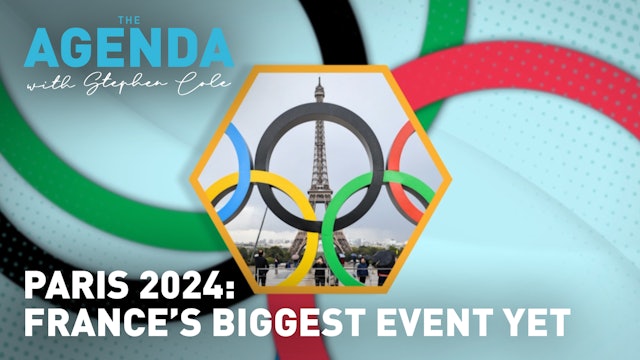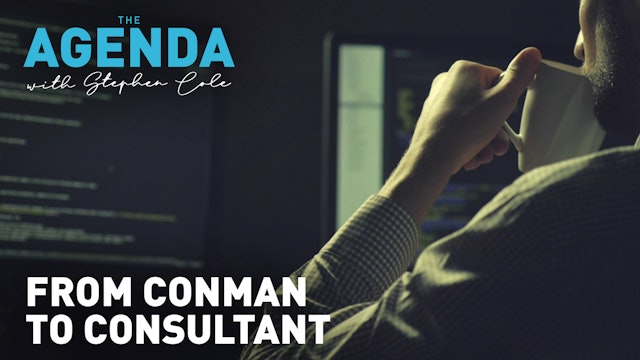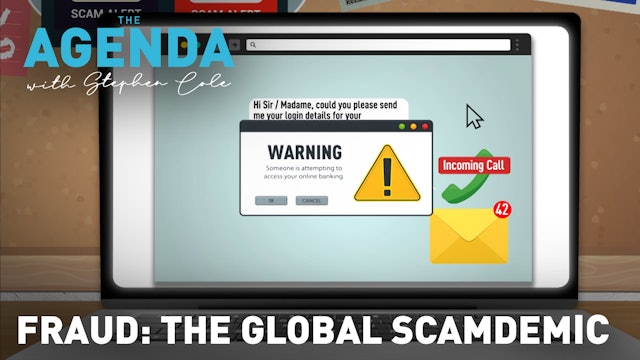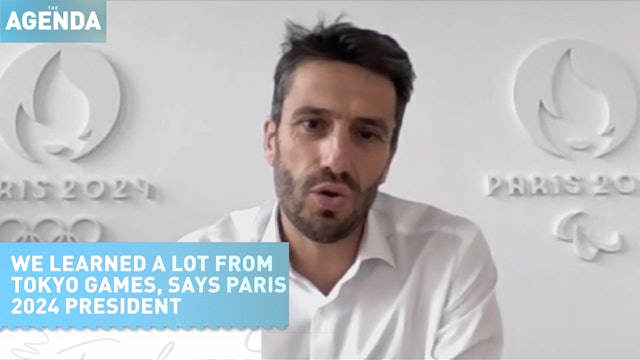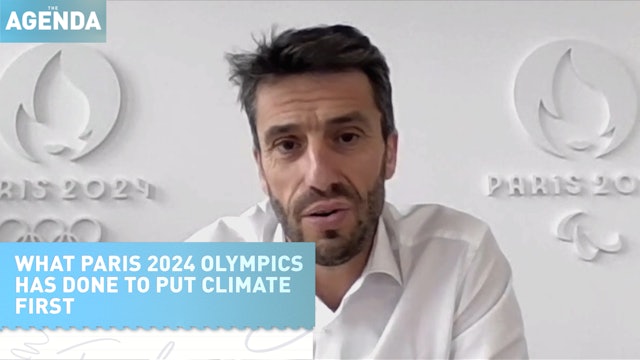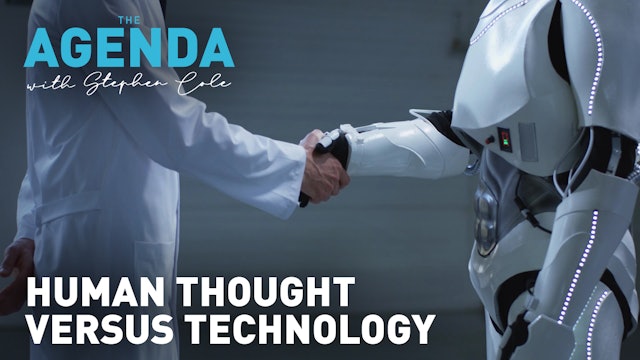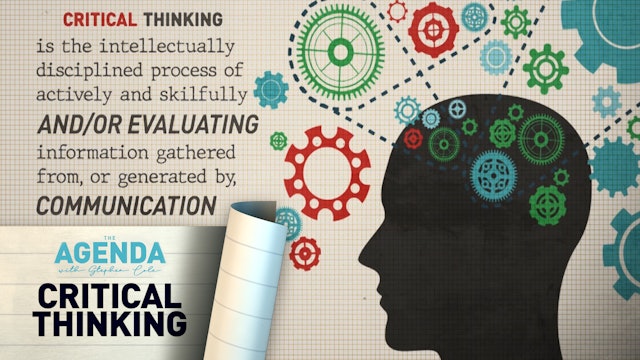The Agenda
Stephen Cole is an internationally acclaimed television presenter.
He has helped launch four international news channels – Sky News, CNN International, BBC World and Al Jazeera – and has chaired many international events.
He also created the world’s first IT show, Click Online, taking it around the world to 28 countries in seven years.
Stephen took a break from television to return to London, where he was appointed chairman of the Institute of Diplomacy and Business. After his three-year term ended, Stephen joined CGTN as executive producer and host of new talk show, The Agenda.
As well as presiding as a judge at the Royal Television Society News Awards and the BAFTAs, he has chaired discussions at the United Nations, setting the five-year agenda for UNESCO.
-
The microplastics problem #TheAgenda
It’s estimated there are now more than 5 trillion pieces of microplastic - that’s pieces of plastic less than 5mm long - polluting the world’s oceans. And as well as a risk to the environment, there’s now real cause for concern on their impact on human health.
Earlier this year scientists found...
-
Metaverse Money: Bradley Duke, Founder & CEO, ETC Group - The Agenda
WHAT’S THE ISSUE?
If the likes of investment bank Citi are to be believed, the metaverse represents a potential $8-$13 trillion opportunity by the end of this decade. It estimates by then there will be as many as 5 billion users working, playing and just hanging out in this new virtual world by t... -
Global food worries:economist at the Food & Agriculture Organization -The Agenda
WHAT’S THE ISSUE?
Earlier this year, the World Food Programme had warned that the combination of climate change, Covid and conflicts in Ethiopia, Syria and Yemen constituted a perfect storm of food insecurity risk factors for the world’s poorest countries.
And then came the conflict in Ukraine – ... -
FOOD INSECURITY IN AFRICA - Ruth Oniyang'o, Professor of Nutrition - The Agenda
WHAT’S THE ISSUE?
Africa is already the world’s most food insecure continent. Acute food insecurity rose 60 percent in the year to February 2021 – largely as a result of the so-called three c’s – COVID, conflict and climate change.
But with Ukraine and Russia supplying millions of tonnes of wheat... -
FOOD SECURITY - The Agenda with Stephen Cole
The United Nations has warned that the conflict in Ukraine could lead to a "hurricane of hunger and a meltdown of the global food system."
And that's because, combined, Ukraine and Russia account for nearly 30 percent of global wheat exports, 20 percent of corn exports, and more than 80 percent ...
-
RENEWABLE FUTURE - The Agenda with Stephen Cole
With Europe at the centre of an energy crisis, the world has never been more committed to a future powered by renewables.
The US and the EU have already announced a major deal on liquified natural gas (LNG) – a fossil fuel, albeit the cleanest of them - in an attempt to reduce Europe's reliance o... -
A question of sanctions
Since President Putin’s “special military operation” in Ukraine began, Russia has been hit by sanctions at an unprecedented speed – and at an unprecedented pace.
The EU, US, UK, Japan and Canada amongst others have all imposed strict controls or even total bans on Russian imports and exports, a...
-
Tony Estanguet, the President of the Paris 2024 Olympic Games
"After my career as an athlete, to have this unique chance to organize the Games in my country is a fantastic journey."
Tony Estanguet, the President of the Paris 2024 Olympic Games, speaks to Stephen Cole on #TheAgenda.
-
Tony Estanguet, the President of the Paris 2024 Olympic Games
The Paris 2024 Olympic Games are focused on being as environmentally-friendly as possible, including public transport being used to access all venues and serving food with a small carbon footprint. 🚎 🥙 #TheAgenda
-
Olympic Ambition: how will Paris perform on global sport stage - The Agenda
The Paris 2024 Olympic and Paralympic Games – exactly 100 years since hosting the Summer Games of 1924.
The Paris Games will be the biggest moment France has ever organised, with 32 sports, 306 events, 10,000 participants and a billion people expected to watch the opening ceremony.
Just how dif... -
PASSING THE BATON: 1x1 with the President of Paris 2024 - The Agenda
The baton has been passed. With the program featuring 32 sports encompassing 306 events, organizers say the Paris Games will be the biggest event France has ever organised. Following a turbulent period of preparation, just how will Paris perform on the global stage of sport?
To find out, The Age...
-
For love or money: Romance fraud - The Agenda with Stephen Cole
WHAT’S THE ISSUE?
Following Valentine’s Day, there is one type of fraud on everyone’s lips - Romance fraud.
Dating online without meeting in person has become the new normal throughout the pandemic, and fraudsters jumped at the opportunity of making money from lockdown loneliness.
Romance fraud... -
Suspicion: The primary defence against fraud- The Agenda with Stephen Cole
WHAT’S THE ISSUE?
Every country would agree that fraud is a shared global problem, so why is there not a collaborative effort to tackle it?
And which types of fraud have soared since the pandemic?
Stephen Cole speaks to a fraud Professor to find out.MEET THE EXPERT
Professor Mark Button is D... -
Meet the former criminal now helping to fight fraud, Tony Sales - The Agenda
WHAT’S THE ISSUE?
Fraud tactics are becoming increasingly sophisticated, and whilst everyone was sat at home during Covid lockdowns, it undoubtedly proved the perfect training ground for criminals.
But how can we stay one step ahead of them? Stephen Cole meets a conman-turned-consultant to find ... -
FIGHTING FRAUD - The Agenda with Stephen Cole
Fraud is a global problem with a global cost, running into the trillions (equating to more than 6% of global GDP). Of course, the true scale is unknown as that figure does not include unreported cases. Many instances of fraud are often kept under the radar due to various reasons including cover-u...
-
Explainer: How fraudsters exploited the ‘scamdemic’ - The Agenda
Despite how quickly Covid lockdowns changed our lives, criminals seemed to have no problem keeping up. As families and businesses struggled, they quickly capitalised on the pandemic by adjusting their fraudulent activity to fit our changing lifestyles.
Just how big a problem is fraud in a post-p... -
We learned a lot from Tokyo games, says Paris 2024 President - #TheAgenda
There are many challenges that a city hosting an Olympic Games has to face…
But Paris, which will host the next games in 2024, has taken inspiration from the recent Tokyo Olympics. 🇫🇷
Find out how by watching The Agenda’s interview with the games’ President Tony Estanguet.
-
What Paris 2021 Olympics has done to put climate first - #TheAgenda
Organizers of the Paris 2024 Olympic Games are keen to ensure a climate-friendly event after being impressed with Tokyo’s recent attempts.
But what measures have they implemented to make sure they meet their own demands?
#Find out in #TheAgenda’s interview with Paris 2024 President Tony Estang...
-
Can critical thinking compete with artificial intelligence? - The Agenda
WHAT'S THE ISSUE?
Critical thinking and its benefits can be traced back thousands of years. The methodology named after Greek philosopher Socrates—the Socratic method—is one of the earliest critical thinking instruction tools known to man. Centuries later, Roman Emperor Marcus "The Philosopher" A... -
Is social media holding back critical thinkers of the future? - The Agenda
WHAT’S THE ISSUE?
It's never been more important for students at universities to learn about critical thinking. And it is not a new concept in universities. Scholars like Thomas Aquinas often list every argument and then against every argument. Academics are constantly evaluating, making sure tha... -
How play-based learning could dominate education - The Agenda with Stephen Cole
🤔 When it comes to training the next generation of successful leaders, it is being widely argued that schools should switch to teaching what is called the 4 Cs.
They are Critical thinking, Communication, Collaboration and Creativity.But are they enough to equip them with those tools that they...
-
CRITICAL THINKING - The Agenda with Stephen Cole
It’s estimated we’ll need to upskill or reskill at least 85 million people by 2030 to prevent the global economy losing more than $8 trillion in GDP, as a result of artificial intelligence, automation, changing demographics and globalisation.
That’s got the world of business, politics and educat...
-
The world's imbalanced diet - #TheAgenda with Stephen Cole
Discover how our eating habits have been shaped by globalization and the pandemic, as well as the difference between western and Chinese food 👇
Watch #TheAgenda in full: https://youtu.be/VNarI_pFrPI
-
The most important thing is Olympics happen - The Agenda with Stephen Cole
WHAT’S THE ISSUE?
The big event at the beginning of this year is the 24th winter Olympic Games in Beijing.
Thousands of athletes will gather as Beijing becomes the first ever city to host both the summer and winter olympics. Chef d'equipe of the French team for Beijing 2022 and a three-time Olym...

